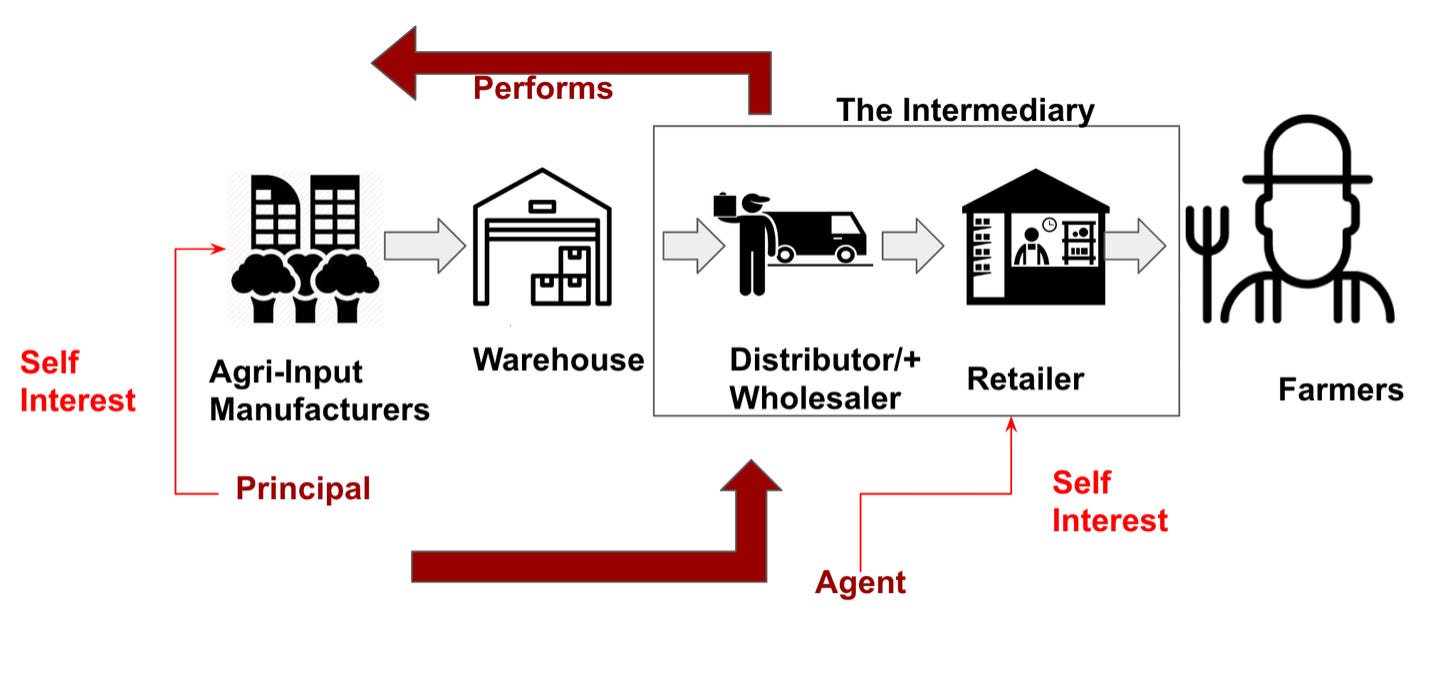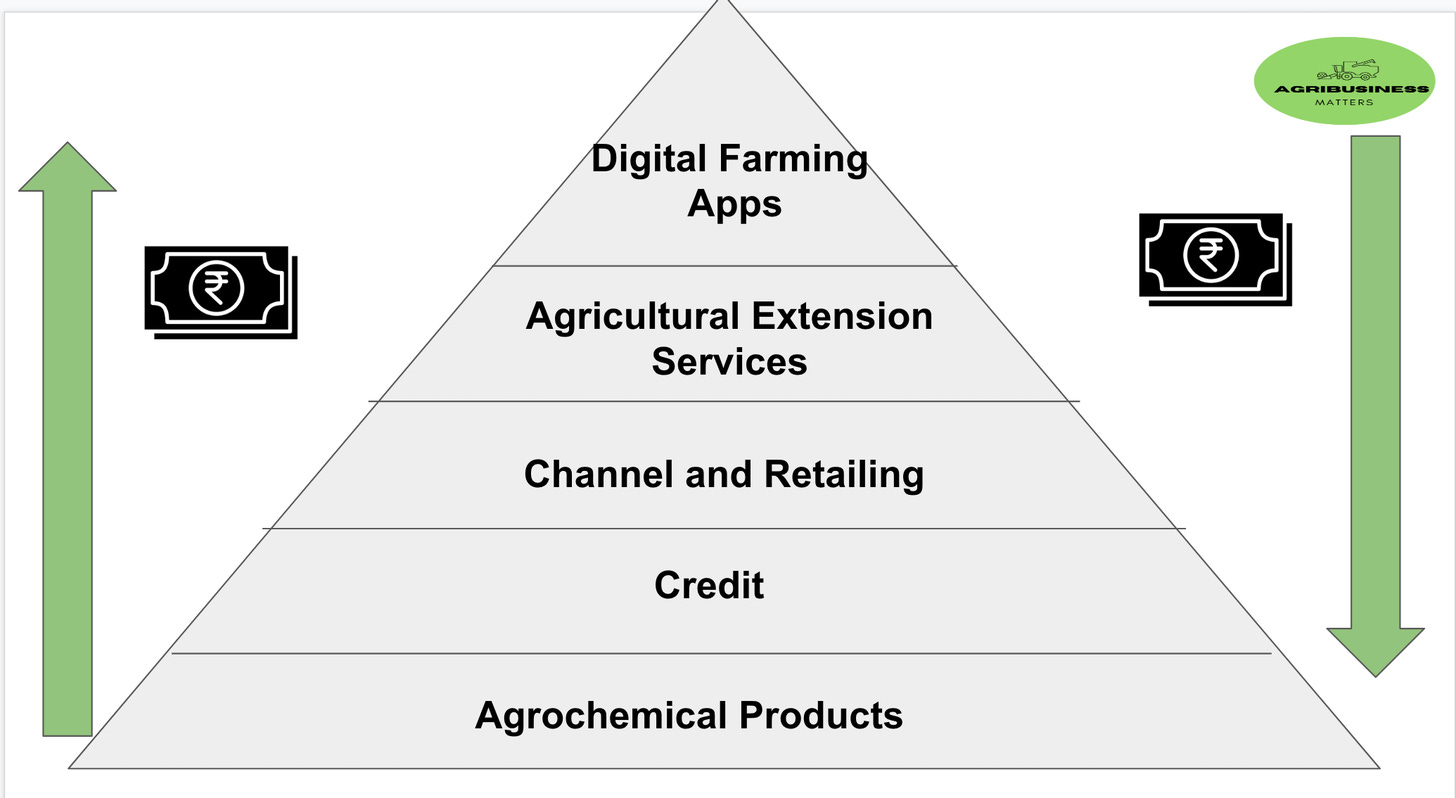Can Agri-Inputs Be 'Original 4 Sure'?
Plus! Spotlight on Startups Attempting to Change the Rules of Engagement with Farmers.
Dear Readers,
Welcome to the Sunday Digest Edition of Agribusiness Matters. I am back from my vacation and excited to sit down at my desk. I hope this mail finds you in the pink of health and spirits!
Orientation: My name is Venky. I write Agribusiness Matters every week to have a straight talk on Digital Agriculture, Agritech and Agribusiness Matters. Because let's face it. Agribusiness matters. You probably signed up from here.
On the 10th of November, I published Shirky’s Principle and the Eternal War Footing Against Spurious Agri-Inputs [Subscribers-only]. In this essay, I outlined agency problems in the distribution of agri-inputs and presented my arguments to show why the war against spurious agri-inputs will never be won.
Economics Eats Advanced Technologies for Lunch has been a recurring theme in Agribusiness Matters newsletter.
When I earlier wrote Netafim India’s Beer Game Problems, I delved into this and the previous newsletter on spurious agri-inputs gave me yet another excuse to corroborate further with one of my favourite tough nut problem: Agency Problems.
When you are confronted with a systemic issue like agency problems, you cannot cure such structural defects by any means. You have to let the system collapse.
There is one problem though.
The government keeps pumping money into the system and such structural defects continue to thrive.
On November 12th, Finance Minister Nirmala Sitharaman announced a Rs 65,000-crore fertilizer subsidy for farmers as part of her stimulus package to boost the economy. While the government is making the right noises about DBT, as my favourite analyst on India’s Fertilizer policy mess writes, ‘the transition to DBT to farmers will be next to impossible’.
Essentially, this problem boils down to one thing.
Skin in the game.
Trust Nassim Nicholas Taleb to define it in his inimitable style.
The phrase is often mistaken for one-sided incentives: the promise of a bonus will make someone work harder for you. For the central attribute is symmetry: the balancing of incentives and disincentives, people should also be penalized if something for which they are responsible goes wrong and hurts others: he or she who wants a share of the benefits needs to also share some of the risks.
When you consider the fact that there is an inherent asymmetry in our relations with the farmer, you would realize the gravity of the problem that we have in hand.
Can startups working in agri-input supply chain stand up to this challenge of asymmetrical relations between a)agri-input manufacturers and intermediaries, b) agri-input manufacturers and farmers? c) intermediaries and farmers?
Although there are worthy contenders like Kezzler, Original 4 Sure attacking the counterfeiting problem directly on its head, as my essay argues, my bet will be biased towards those startups who are making orthogonal bets in changing the rules of engagement of farmers.
Disruption in status quo will come from startups who are changing the underlying market rules, rather than from those caught in a tom-and-jerry chase between agri-input manufacturers and counterfeiters.
Which startups are attempting to change the rules of engagement? Here are two which are often seen in my radar.
There is Digicides, with an interesting farmer ad-tech platform model which comes along with CRM and Hyper targeting approaches, claiming, in their Founder’s words, ‘1.6 crores unique Farmer touch-points’.
And then there is Hesa Global, a BTL Brand and Sales Activation Agency which provides, in their founder’s words, ‘phygital Last Mile Connect for Buy & Sell in Rural India’.
Despite their differences in approach, they are tackling a similar problem: Unbundling extension services from the agri-input manufacturer’s vertical stack.
As I had written earlier in Plantix and the Two Roads to Digital Agriculture[Subscribers Only]
Agri-Input firms invest in rural credit, channel and retailing, and agricultural extension services to the extent necessary to preserve the profit margin they gain from selling agrochemical products.
Today, these startups, by unbundling agricultural extension services through a farmer engagement platform/marketplace models, they are attempting to disrupt the umbilical cord which ties the agri-input manufacturer with their intermediaries, and by extension, farmers.
Will they succeed? I will explore this further!
Thank you for reading. Enjoy your Sunday!
Cheers,
Venky




